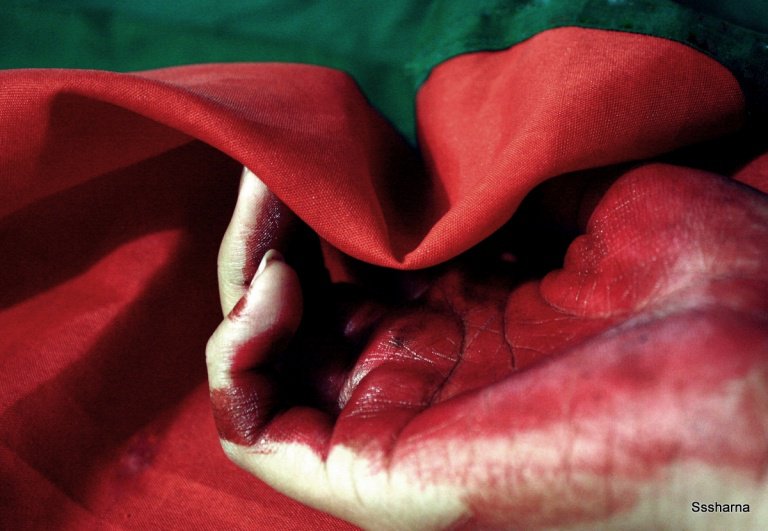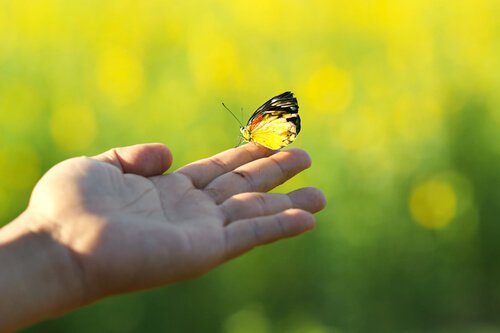5 Quotes from Albert Camus that Will Change Your View On Life

The writer and Nobel Prize winner Albert Camus stands out above all for his way of looking at life. In his books, he leaves clear examples of the evolution of the characters according to their personality. We can see each one of ourselves reflected in them.
Albert Camus is recognized for his humanistic literature. Influenced by the philosophy of F. Nietzsche, he puts a special emphasis on the absurdity of the human condition, striving to bring awareness and perspective through his literary works.
Albert Camus and his existentialist thought
The presence of existentialism in the thoughts of Albert Camus is very marked throughout all of his literary works. In his most well-known works, such as “The Stranger”, “The Plague”, “The Myth of Sisyphus”, etc., the author reveals his deepest concerns, with a reflective and lucid philosophy of the human existence.
He speaks to us in his works about the spiritual crisis of our era. He approaches it through the context of religious, political and artistic expression. Offering us his philosophical ideas, new dimensions about how you can deal with the issues that trouble all of us.
In his phrases, we can see what his great reflections and worries were. Camus leaves us with a literary legacy so that we may dare to look at ourselves. So that we can see ourselves with our miseries, manias, virtues, deceits and skills. In this selection of phrases, we will analyze some of the most characteristic.
1. “Not being loved is a simple misfortune; the true disgrace is to not love.”
In this phrase, he manifests the strength and plenitude implied in the act of loving. Proof for those who have experienced an unrequited love, that what they have felt is worth all of the pain they have experienced, regardless of the sorrow.

In the very act of love we can see ourselves, with that ability to admire another being in all of their beauty. To admire them through a view that surpasses rationality. Anyone who has experienced this feeling, though frustrating, will know that it is preferable to have felt it. It is something so valuable that is generated within our being, with no other intention but to love.
2. “Every time that a man is chained in the world, we are chained with him. Freedom must be for everyone or for no one.”
A phrase with a humanistic essence. It declares that freedom cannot exist while there is still a single man in this world without it. And obtaining our freedom as a result of others’ losing theirs is an inhuman act.
Camus thus claims compassion and solidarity so that every human being may acquire the same rights. Letting it be known that he is against a few obtaining these rights at the expense of others being robbed of theirs.
3. “A man has two sides: he can’t love without loving himself.”
Many philosophers and great thinkers show us this idea. The idea that it is not possible to love without loving yourself first. It is based on the idea that we can only give that which we have, and love is no exception. It is undeniable that this feeling is the result of what we are able to give.
If you are capable of cultivating your own love, of providing care and attention for yourself, in that moment you will be creating the necessary conditions to be able to give that feeling to others. Based on what you are and from the honest love you have gestated.

4. “In the depths of winter I finally learned that within me resided an invincible summer.”
Hope resides within us, within our attitude and the perspective we are able to adopt at each given moment. When we think of ourselves as our successes and possessions, we are placing our value outside of ourselves.
It is easy and predictable that this type of superficial value be brief and fleeting. And that sooner or later it will be susceptible to being destroyed. When we base our value on what we are, accepting our difficulties and fears, we thus learn to count on ourselves for any grief and frustrating issue.
5. “True generosity, in relation to the future, consists in giving it all to your present.”
We know that everything we are is based on the present moment. Thus, that accumulation of moments is what makes up our future. We sow every moment so that experience may bloom, and that’s how we acquire our lessons.

Giving everything to your present moment consists in doing what you can at that given moment. Always according to what we want. That’s how we construct our destiny, focusing on each situation, trying to give the best of ourselves. What we are currently living is the consequence of what we have learned and the attitude we take on towards each of our experiences.
This text is provided for informational purposes only and does not replace consultation with a professional. If in doubt, consult your specialist.








